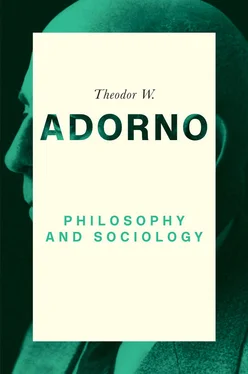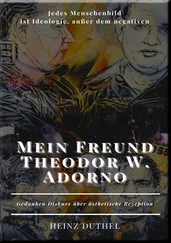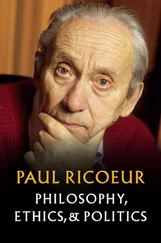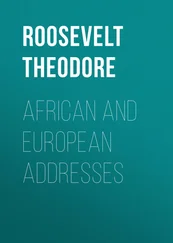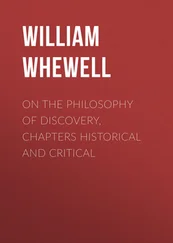27 27 See Kant’s discussion of ‘The Original Synthetic Unity of Apperception’, in §16 of the Critique of Pure Reason (B 131–6; Immanuel Kant’s Critique of Pure Reason, trans. Norman Kemp Smith, London, 1970, pp. 152–5).
28 28 ‘The Deduction of the Pure Concepts of the Understanding’ is the title of chapter 2 of Book 1 of the Critique of Pure Reason (Kemp Smith, pp. 129–75).
29 29 In §16 of the Critique of Pure Reason Kant writes:It must be possible for the ‘I think’ to accompany all my representations; for otherwise something would be represented in me which could not be thought at all, and that is equivalent to saying that the representation would be impossible, or at least would be nothing to me. That representation which can be given prior to all thought is entitled intuition. All the manifold of intuition has, therefore, a necessary relation to the ‘I think’ in the same subject in which this manifold is found. (Kant’s Critique of Pure Reason, Kemp Smith, pp. 152–3)In Negative Dialectics Adorno provides a critique of the constitutive function of the pure ‘I think’ (GS 6, pp. 63f., 98, 184f., 213, and 228f.; Negative Dialectics, trans. E. B. Ashton, London, 1973, pp. 53, 91, 182f., 213, 229).
30 30 Reading ‘Einheit’ for ‘Eigenheit’.
31 31 In the Prolegomena Kant writes:The uniting of representations in a consciousness is judgment. Thinking therefore is the same as judging, or referring representations to judgments in general. Hence judgments are either merely subjective when representations are referred to a consciousness in one subject only and are united in it, or they are objective when they are united in a consciousness in general, that is, necessarily. The logical moments of all judgments are so many possible ways of uniting representations in consciousness. But if they serve as concepts, they are concepts of the necessary unification of representations in a consciousness and so are principles of objectively valid judgments. (Werke in sechs Bänden, vol. III, p. 171 (A 88); Prolegomena to Any Future Metaphysics that Will Be Able to Come Forward as Science, trans. Paul Carus, rev. James W. Ellington, Indianapolis, 1977, §22, p. 47)
32 32 An allusion to a line from the final strophe of Schiller’s ‘Rider’s Song’: ‘Youth dashes, life sparkles’ (Friedrich Schiller, ‘Reiterlied’, in Sämtliche Werke, ed. Gerhard Fricke and Herbert G. Göpfert, 3rd edn, Munich, 1962, vol. 1, p. 414).
33 33 In §7 of the introduction to the second volume of the Logical Investigations (‘The Principle of the Presuppositionless Character of Epistemological Investigations’) Husserl wrote: ‘An epistemological inquiry which makes a serious claim to be regarded as scientific in character, must, as has indeed often been said, satisfy the principle of presuppositionlessness. But in our view this principle can only mean the strict exclusion of all assertions that cannot be fully and completely realized phenomenologically’ (Husserliana, Gesammelte Werke, vol. IX.2: Logische Untersuchungen. Zweiter Band, p. 24; Logical Investigations, vol. 2, Findlay, p. 11). Adorno always strongly criticized philosophies which appealed to some kind of first or original principle, and thus rejected ‘the idea that we must begin from something which is primary and entirely certain, upon which everything else must subsequently be based in a transparent way.’ For this approach already decides key questions in advance – like the question concerning the possibility or necessity of some such original principle in the first place. These questionscan only be resolved in the context of philosophy itself. The concept of presuppositionlessness in particular is a fantasy and has never actually been realized by any philosophy. Anyone who genuinely engages with philosophy must leave this idea of presuppositionlessness outside … In short, the only appropriate thing where philosophy is concerned is to give oneself over to it without recourse to any kind of authority, but also without anticipating the result by imposing rigid demands on it from the start, while still retaining one’s own capacity for thought. There can be no rules for this, but only modest suggestions for how to go about it. (Zum Studium der Philosophie, GS 20.1, pp. 318f.; see also NaS IV.4, pp. 30f.; Kant’s Critique of Pure Reason, trans. Rodney Livingstone, Cambridge, 2001, pp. 15–17)
34 34 The ‘Dasein analysis’ to which Adorno refers was developed by Ludwig Binswanger (1881–1966), a student of C. G. Jung (1875–1961), in the early 1940s. It attempted to develop a therapeutic approach that was not specifically based on psychology – i.e., on an analysis of the subjective development of the patient – but drew instead on the so-called analysis of existence undertaken by Heidegger.
Ladies and gentlemen,
In the last lecture I took Kant as a starting point and model for exploring the traditional resistance and antagonism which some disciplines have displayed towards sociology and all forms of truth or knowledge that appeal to the factual domain. In terms of the central problem I have already indicated, I should now like to do the opposite and introduce you to the kind of resistance to philosophy that one typically encounters in the field of sociology. And here you may be surprised by two things in particular. The first is that such resistance has by no means always characterized our two disciplines – for we shall soon be exploring certain theoretical positions for which the distinction between philosophy and sociology did not yet exist at all. But secondly you will also see that the rejection of philosophy on the part of sociology goes back a very long way, and that ever since ‘sociology’ has expressly existed as such – since it became aware of itself as a specific discipline and adopted this elegant name cobbled together out of Latin and Greek – the anti-philosophical impulse has remained alive in the field of sociology. I shall shortly illustrate this with reference to Auguste Comte. But I shall also show you that the reasons for this resistance of sociology to philosophy are very different from those you may generally imagine when you try and understand the problematic relationship between these two fields – and this all recalls Benjamin’s observation that the quotations in his writings are like robbers that assault the reader on the open road and make off with his convictions. 1What I mean is that sociology has not simply proved to be the more progressive or more enlightened discipline in comparison with the less enlightened or reactionary discipline of traditional philosophy; on the contrary, we shall see that sociology, at least in its specific Comtean sense, arose in a polemical reaction to philosophy which was seen as a destructive expression of Enlightenment. In other words, the sociologists of the Comtean period actually reproached philosophy for the same kind of things that our rustic and forest philosophers tend to reproach sociology with today. This may already give you some insight into something which I regard as of the utmost importance, and which I would like you to think about right here: there is no theoretical position, of whatever kind, whose function within society is entirely independent of the social and historical situation at the time. There is no truth that cannot be abused and turned into ideology, no theoretical position that cannot be brought to serve the opposite of what it undertakes to claim. And this alone should already suffice to make you sceptical in the face of the all too hasty identification of theory and praxis that is popular today.
But, to return to Comte and his struggle against philosophy, I should just like to remind you in brief that the concept of ‘progress’, which along with that of ‘order’ is one of the highest concepts in Comte’s sociology, found exemplary expression in his famous theory of stages. 2He assumes three stages in human historical development: firstly, the theological-dogmatic stage; secondly, the metaphysical stage; and, thirdly, the stage which he calls the positive or scientific stage, the stage which in Comte’s eyes culminates in sociology. The really noticeable thing here, and this already reveals one of the remarkable analogies between the arch-positivist Comte and the arch-idealist Hegel, is that the real polemical thrust of this conception – and one never knows with Comte whether we should speak of a philosophy or a sociology here – is directed more against metaphysics, in other words against philosophy, than it is against theology, and this is precisely because in his own time Comte was concerned principally with speculative philosophy as a specifically critical force. You have to realize – and this is the only really essential difference between Comte’s theory and that of Saint-Simon, which Comte basically just devoured and simply expressed in different terms – that, while Saint-Simon still expressed the entire pathos of revolutionary eighteenth-century bourgeois culture, Comte already betrays anxiety in the face of the disintegrating tendencies of the bourgeois revolution. Throughout Comte we detect the fear that philosophical concepts, especially those of freedom, equality and fraternity – in other words, the Enlightenment ideas that in a certain sense lay behind the French Revolution – threaten to undermine every kind of social order and thus lead to anarchy. It is this position which motivates Comte’s general attack on philosophy, and this is very similar to a passage in Hegel – although one can also of course find many other passages in his work that would rather contradict this – where he says that speculative philosophy actually finds itself allied with religious faith in opposition to a merely rationalistic or merely reflective form of thinking. 3I might add here, since it is also part of my task to alert you to certain possible research projects in this field, that it would be extremely instructive, especially for those of you who are specifically interested in the relationship between philosophy and sociology, to consider undertaking a comparative analysis of Comte and Hegel, for, despite the flagrant differences that are undeniably evident here, you will also find some extraordinary similarities in both thinkers. 4In my own lectures, where the history of philosophy is concerned, I constantly have to point out that the divergences between officially quite opposed schools of thought, such as those of empiricism and rationalism, are actually much less striking, when we look at the specific content of the theories in question, than we might otherwise suppose. And this is one of the reasons why we always warn beginners in philosophy against over-emphasizing or immediately exaggerating the conflict between Locke and Leibniz, or Kant and Hume, for example, or between early empiricism and the early seventeenth-century rationalists, between Descartes and Hobbes. Or at least we must warn against taking these oppositions as if they were absolute, and indeed I think we shall have good opportunity in due course to see why these mutually antagonistic schools do not actually constitute such absolute oppositions as we might easily believe. What Comte calls the metaphysical stage, the second stage of human development, is characterized by the way in which it supposedly objectifies or ascribes independent existence to various intellectual essences or entities, as Comte puts it, 5over against the facts which are subsumed by means of them. This argument is simply that of a rigorous nominalism that rejects the objectification of any concept as mere dogma, and Comte regards such objectification of concepts over against the facts as nothing but a kind of semi-secularized theology. He tells us again and again that metaphysical concepts are actually nothing but theological notions that have been half-heartedly filtered through reason.
Читать дальше
